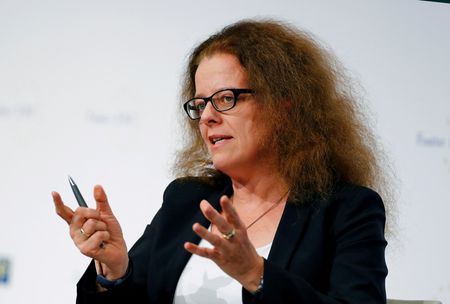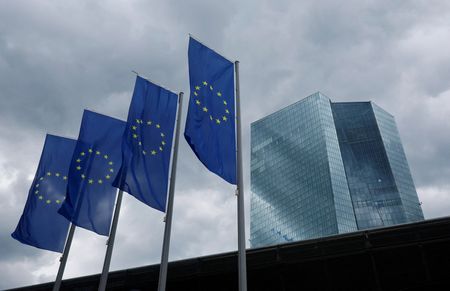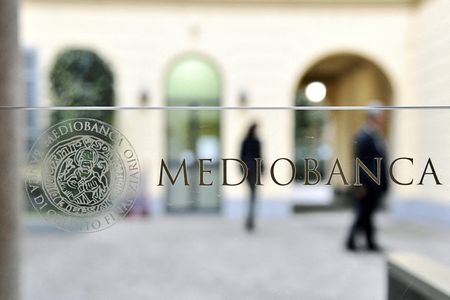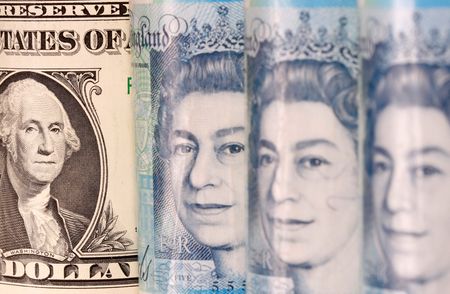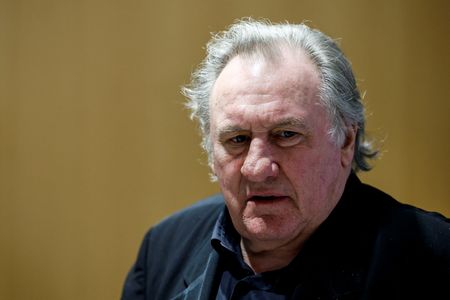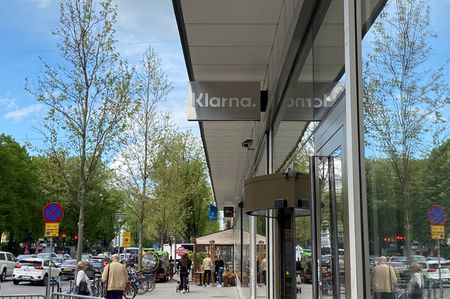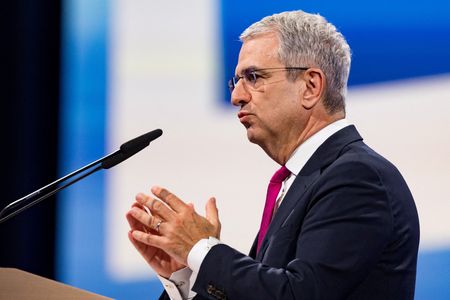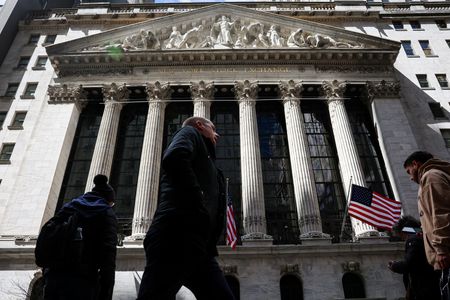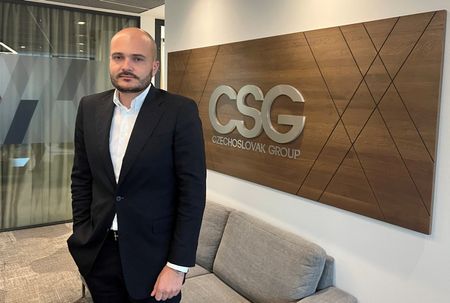By Francesco Canepa and Balazs Koranyi
FRANKFURT (Reuters) -The European Central Bank should keep interest rates steady as the euro zone economy is holding its own in the face of U.S. tariffs and inflation may still come in higher than expected, ECB policymaker Isabel Schnabel told Reuters.
The central bank for the 20 countries that share the euro snapped a year-long easing cycle in July and policymakers are now waiting to see the full impact of U.S. duties agreed in July before deciding if borrowing costs need to fall further.
Schnabel — the most influential among the ECB’s hawks, as policymakers who favour higher rates are known — said she didn’t see the need for more cuts and the current, 2% policy rate may be “mildly” stimulating an already buoyant economy.
“I believe that we may be already mildly accommodative and therefore I do not see a reason for a further rate cut in the current situation,” the German economist said in an interview.
The ECB is expected to keep interest rates on hold at its next meeting on September 11 but investors see a good chance it will cut rates again by June, money market data shows. Sources also told Reuters discussions about further easing were likely to resume in the autumn.
The U.S. Federal Reserve, under pressure from U.S. President Donald Trump, is expected to cut rates this month.
But Schnabel said the euro zone’s economy had fared better than expected thanks to “robust growth in domestic demand” and that it was now in for a “significant fiscal impulse” from Germany’s investment on infrastructure and the military.
Contrary to many of her colleagues and the ECB’s own projections, Schnabel argued global trade tariffs imposed by Trump’s administration would push up inflation, even without retaliation from the European Union.
“I continue to believe that tariffs are on net inflationary,” Schnabel said. “If you have an increase in input prices globally due to tariffs, and these propagate through global production networks, this will increase inflationary pressures everywhere.”
She also said tariffs would disrupt supply chains, citing Chinese restrictions on the export of several rare earths and a U.S. decision to tax even small-value parcels as examples.
This, together with fast-growing food prices, meant Schnabel saw “the balance of risk as being tilted to the upside”, meaning inflation may surpass the ECB’s projections for 1.6% next year and 2% in 2027.
While Schnabel was not advocating for rate hikes at present, she thought the time for tightening may come, for central banks across the globe, sooner than thought due to trade curbs, fiscal largesse and an older population.
“A more fragmented world with a less elastic global supply, higher fiscal spending and ageing societies is a world with higher inflation,” she said. “So I think the point where central banks around the world start to hike interest rates again may come earlier than many people currently think.”
Schnabel saw no evidence of Chinese companies dumping cheap goods on the euro zone as an alternative to the United States, noting China’s overall export prices had recovered and the cost of Chinese imports to the bloc was low but stable.
She also played down the impact of a stronger euro, saying its pass-through to prices will be smaller if it is driven by improving growth prospects in the euro zone.
“Therefore, I am less concerned about exchange rate developments,” Schnabel said.
She remained open to change her views on policy if there were “material and persistent deviations” from the ECB’s 2% target that destabilised inflation expectations but she deemed this unlikely.
“I find it highly unlikely that there’s going to be a de-anchoring of inflation expectations to the downside, especially after these many years of too high inflation,” Schnabel said.
“When you look at firms’ selling prices, you don’t see any indication of disinflationary pressures, neither in the manufacturing nor in the services sector.”
(Editing by Toby Chopra)

